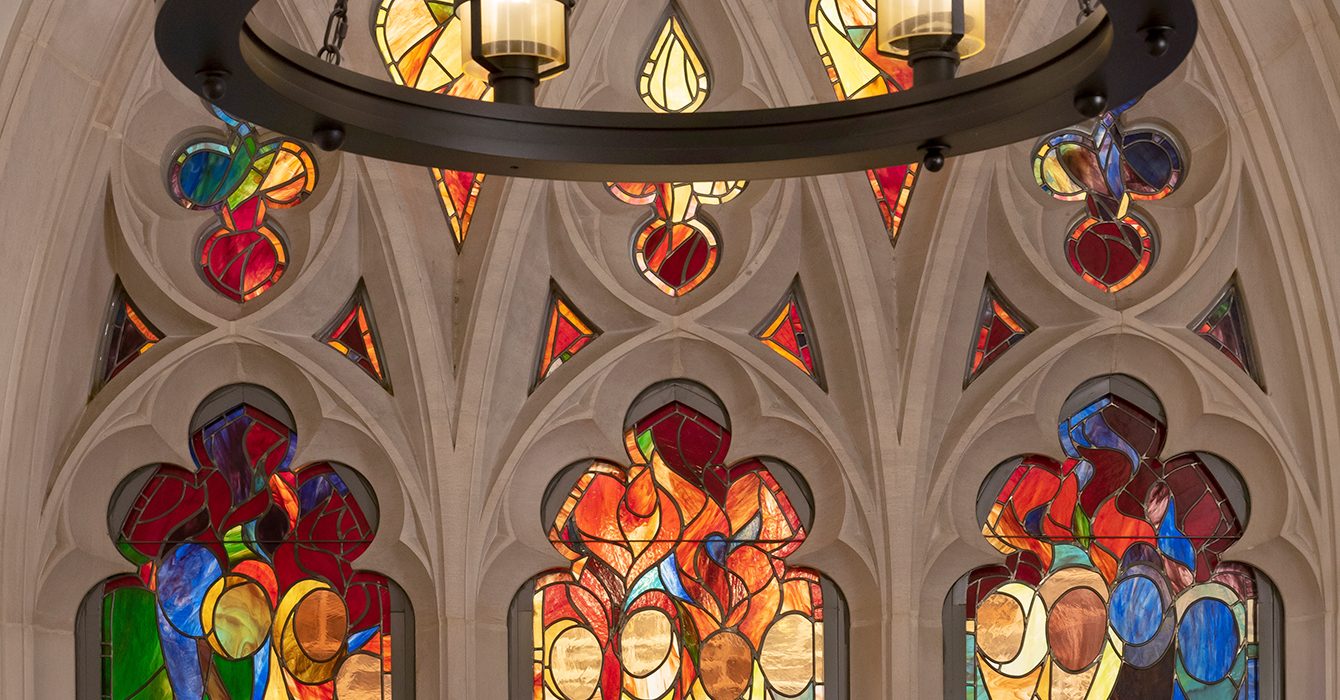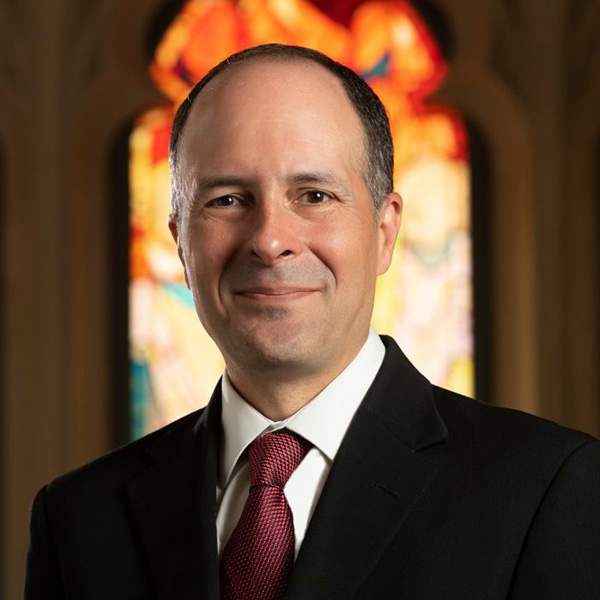Today’s headlines are sobering. The content and pace of news are overwhelming; people are left feeling simultaneously more informed and more confused about what can be done besides doomscrolling and online trolling. Christians, too, are swept up by these tempests. The problems seem too big and the church too small, even petty. The stories under the headlines matter, but they bury the lead: It is Pentecost!
Luke’s Acts 2 account of a gathering in Jerusalem of Jews from every known nation evokes the story of the tower of Babel. For the people of God, Babel stood as a beacon for false forms of unity. When God created human beings, he commanded them to “fill the earth” (Genesis 1:28 NRSV). Migration is at the heart of the human story from the beginning. The Table of Nations in Genesis 10, which names the descendants of Noah “by their families, their languages, their lands, and their nations” (10:31), paints a picture of a diverse, because dispersed, human family.
The tower of Babel was built as a bulwark against multiculturalism. The project failed spectacularly because of God’s intervention. The confusion of languages was not a curse. It was judgment and a mercy on the headlines of the day. The story of Babel in Genesis 11 is followed by the election of Abram in Genesis 12, in whom “all the families of the earth shall be blessed” (12:3). The one is chosen for the sake of the many. What God rejected in Babel, God promised to Abram and wondrously fulfilled in Pentecost. What does this mean?
First, Pentecost promises unity without erasing difference. In the logic of Babel, cultures and languages are ranked. Today, for example, some languages are regarded as classical (Greek, Latin), some as research (German, French) and some as dialects (Kiche, Quechua).
The logic of Babel extends to accents. In the first century, the Galilean accent was distinctive enough that Peter was recognized as a disciple of Jesus because of his accent (Matthew 26:73). According to theologian Virgil Elizondo, people from Galilee slurred hard consonant sounds in ways that made them sound provincial and uneducated. I am not sure whether this is true, but respectable Israelites like Nathanael had a low opinion for what could come out of the borderlands of Galilee (John 1:46).
In any case, the disciples of Jesus shared a common and undervalued cultural background. They were recognizably Galileans before and after Pentecost (Acts 2:7). The Spirit’s fiery tongues did not burn off their particularity. They gained the ability to communicate cross-culturally but did not lose their accents. Pentecost is God’s plan for unifying the dispersed human family. Goals for inclusion, programs in belonging and projects in decoloniality strive for what the Holy Spirit promises: unity without uniformity, dispersion without disconnection, diversity without divisiveness.
Second, Pentecost’s power moves to the margins. When John Wesley first stepped out of the walls of the church in order to reach people working in fields, mines and markets, he preached from the passage from Jesus’ inaugural sermon: “The Spirit of the Lord is upon me, because he has anointed me to bring good news to the poor” (Luke 4:18). This textual choice was not free from controversy. The 18th century dismissed those who talked about the ongoing work of the Spirit as ignorant and irresponsible.
Against the theological currents of his day, John Wesley refused to limit the Spirit’s presence and power to the age of the apostles or the institutions of the church. The rise of Methodism was for him proof that the power of Pentecost was still at work in the world. The Spirit was still active in history, particularly among the marginalized.
According to Scripture, the love of God is poured into our hearts through the Holy Spirit (cf. Romans 5:5). For Wesley, the social dimension of this love is made visible through works of mercy. Pentecost’s power is at work when we feed the hungry, visit the sick and welcome the stranger. It is also at work when we call sinners to repentance and encourage Christians in the way to holiness.
Wesley discovered a gospel correlation that Christians too frequently forget. If you are anointed with the Spirit, you embrace the poor. If you claim Pentecost’s power, you move to the margins.
Third, Pentecost points to the end of history. In both the Apostles’ Creed and the Nicene Creed, the last things are listed under the third article of the creed, the one on the Holy Spirit: resurrection of the body and eternal life. The placement is not accidental. All the things that Christians hope for in the end are related to the Spirit. The resurrection of the body is the work of the Spirit.
As Paul says in Romans 8:11, “If the Spirit of him who raised Jesus from the dead dwells in you, he who raised Christ from the dead will give life to your mortal bodies also through his Spirit that dwells in you.”
The Holy Spirit is the one who leads believers into eternal life (cf. Revelation 22:17). It is this same Spirit that gathers “a great multitude that no one could count, from every nation, from all tribes and peoples and languages, standing before the throne and before the Lamb” (Revelation 7:9). The work of the Spirit is church-shaped and heaven-bound. The end does not look like Babel. The end looks like Pentecost.
Today’s headlines are history, but they are not prophecy. Babel’s narratives of dissent and division are not humanity’s destiny. These are but footnotes in the divine comedy of God and the one holy, catholic, apostolic people of God.
The church is not simply an aging, failing institution; it is the dawn of the new creation. In the words of C.S. Lewis, “The church will outlive the universe.” The stars will grow cold while hallelujah choruses go on in many languages and accents. It is Pentecost!
Goals for inclusion, programs in belonging and projects in decoloniality strive for what the Holy Spirit promises: unity without uniformity, dispersion without disconnection, diversity without divisiveness.












